Daily Journal Samples
-
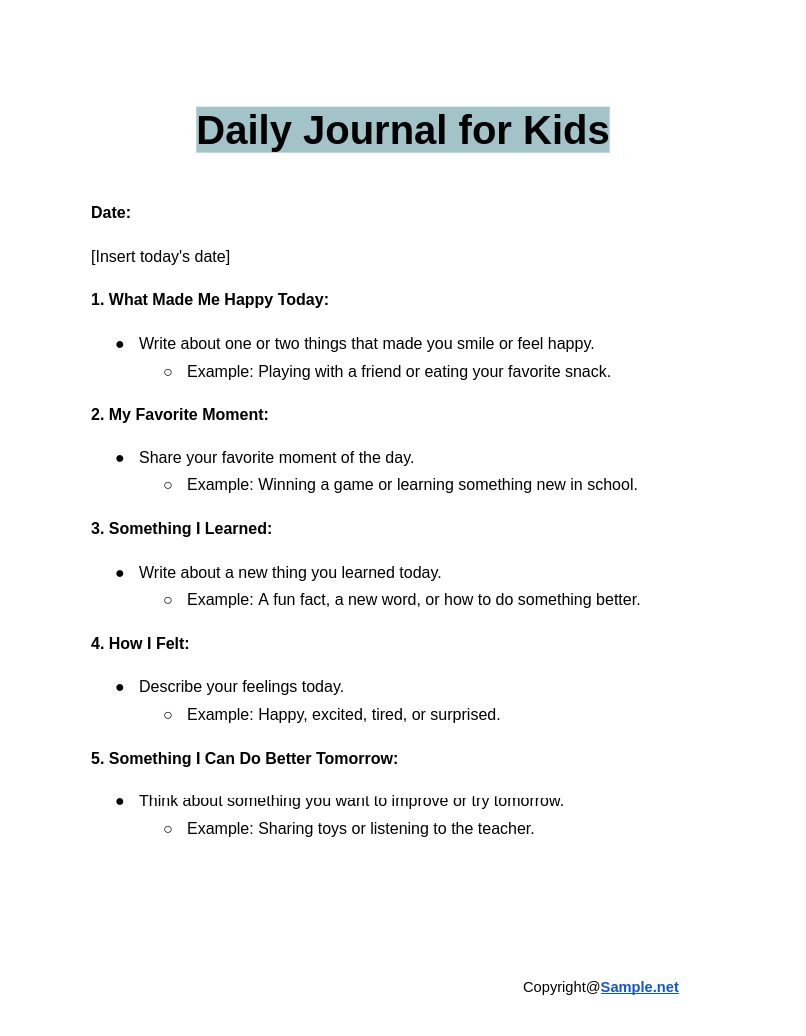
Daily Journal for Kids
download now -
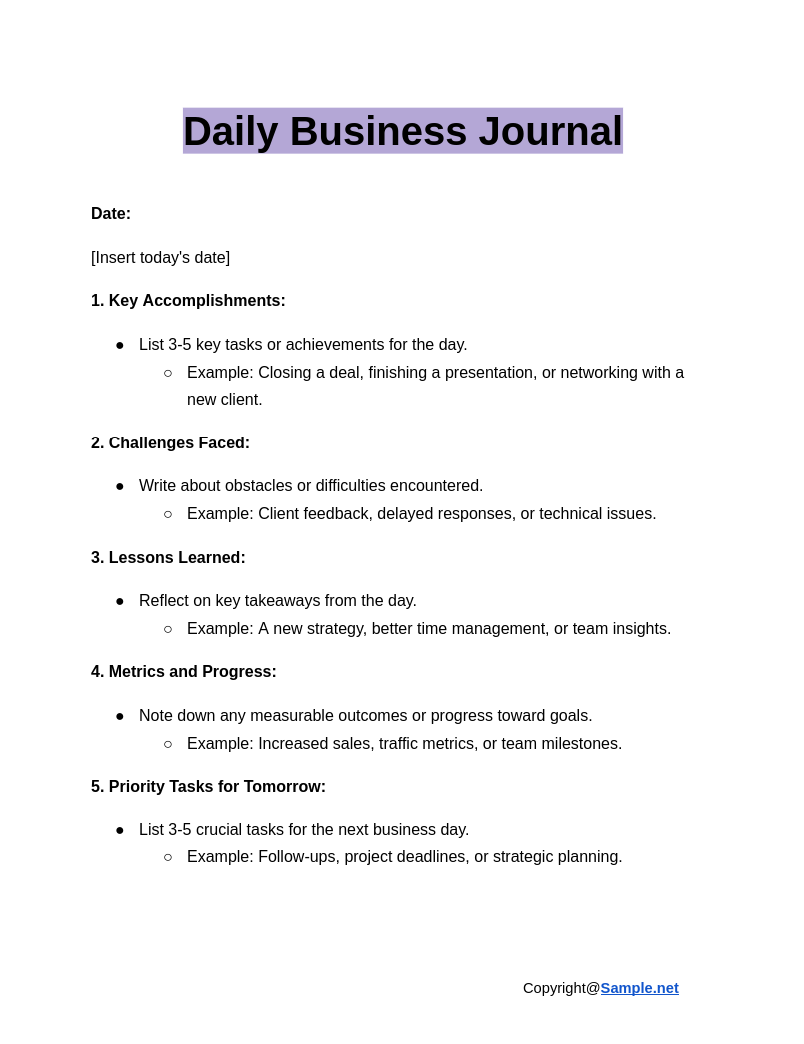
Daily Business Journal
download now -
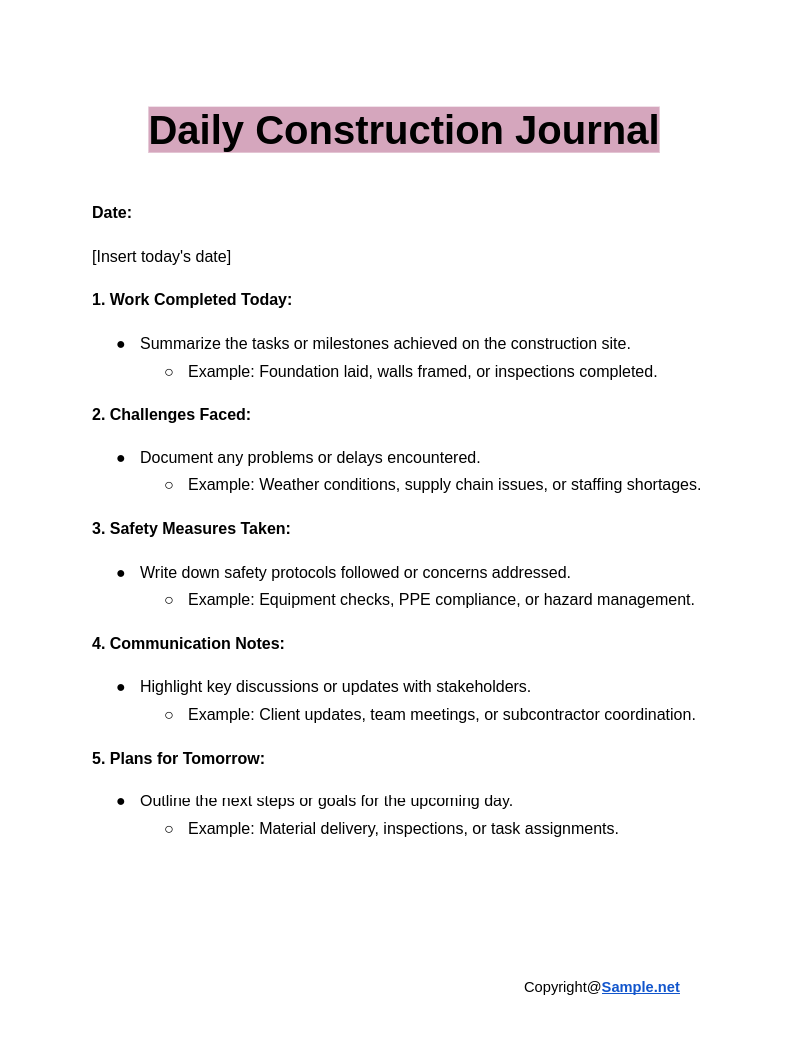
Daily Construction Journal
download now -
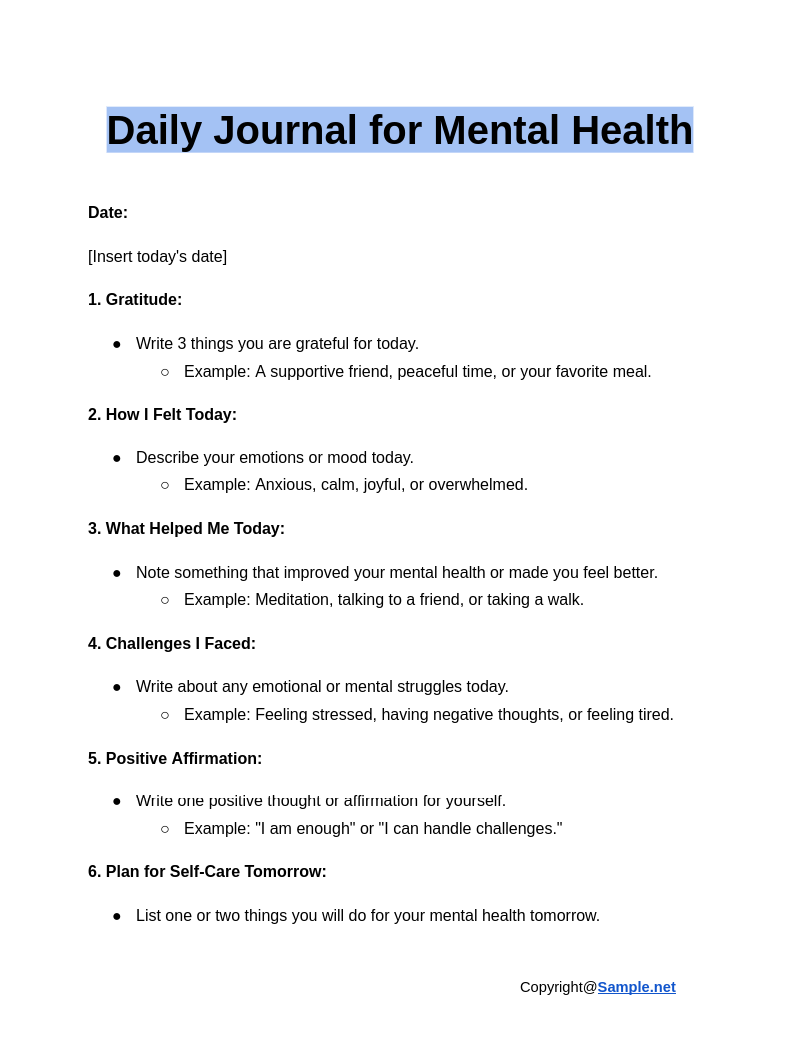
Daily Journal for Mental Health
download now -
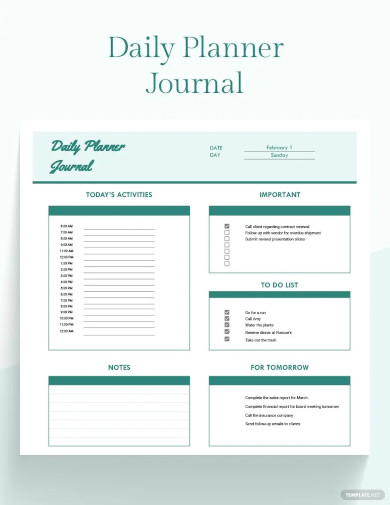
Daily Planner Journal
download now -
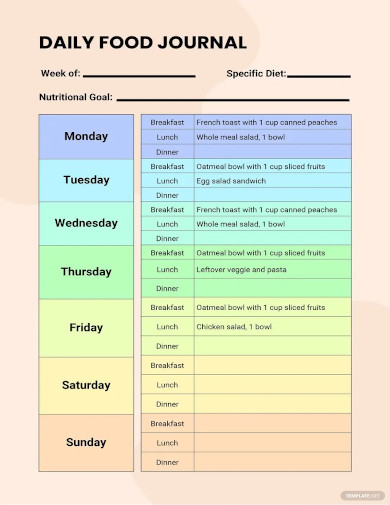
Daily Food Journal Nutrition Chart
download now -
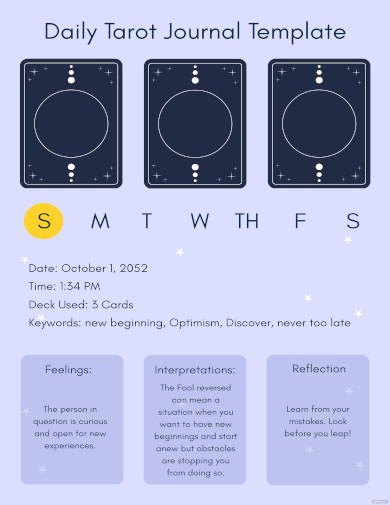
Daily Tarot Journal
download now -
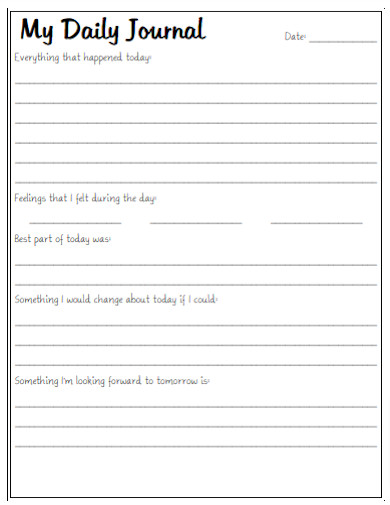
Printable Daily Journal
download now -
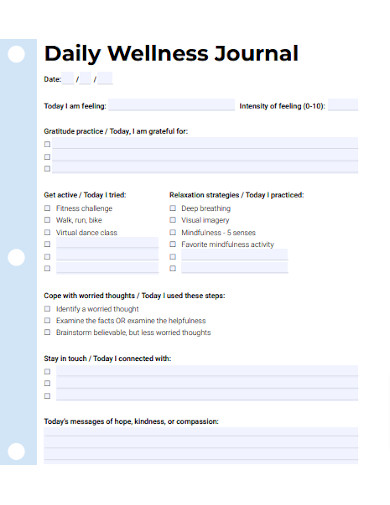
Daily Wellness Journal
download now -
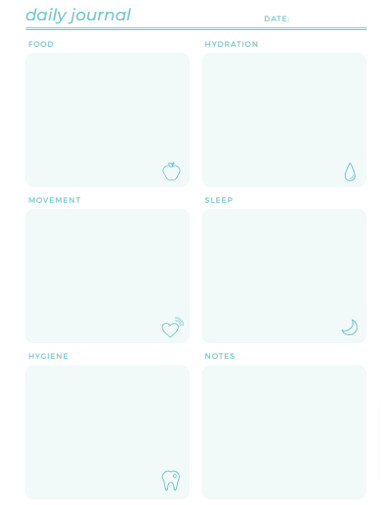
Cute Daily Journal
download now -
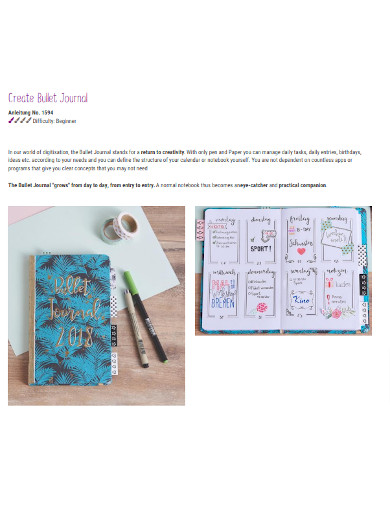
Bullet Daily Journal
download now -
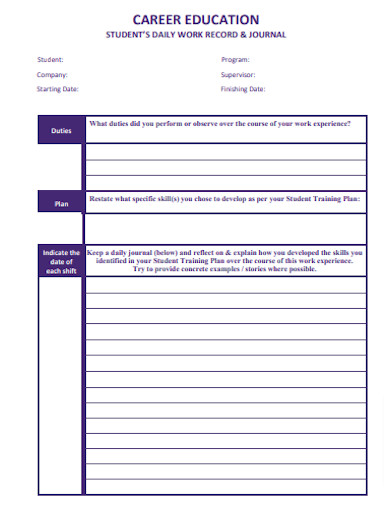
Work Daily Journal
download now -
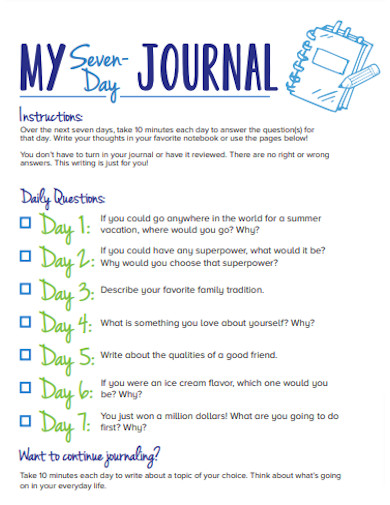
Writing Daily Journal
download now -
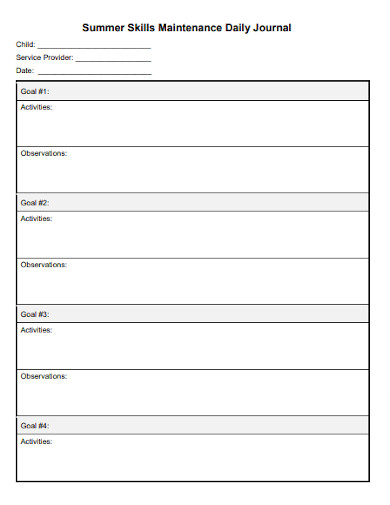
Summer Skills Maintenance Daily Journal
download now -
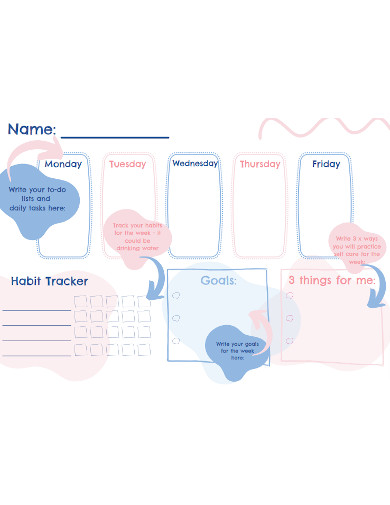
Sample Bullet Daily Journal
download now -

30 Daily Journal Prompts
download now -
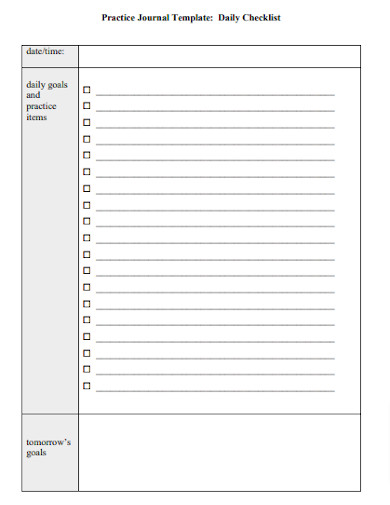
Daily Journal Layout
download now -
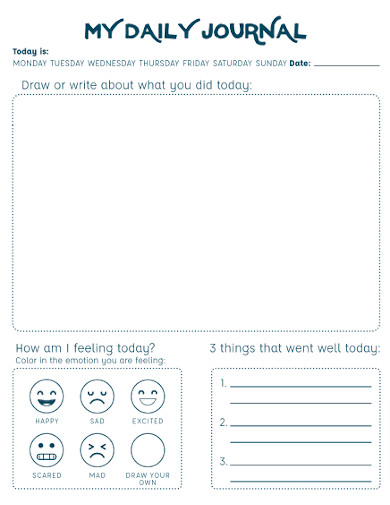
Daily Journal Outline
download now -

Fun Daily Journal
download now -
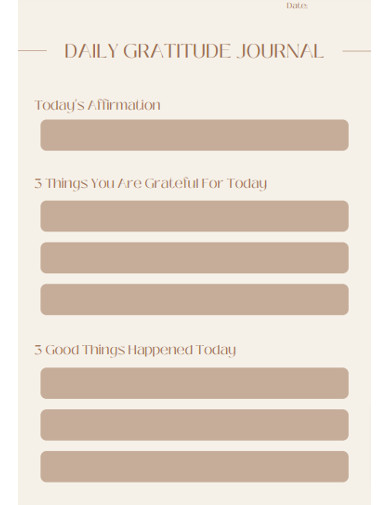
Daily Gratitude Journal
download now -
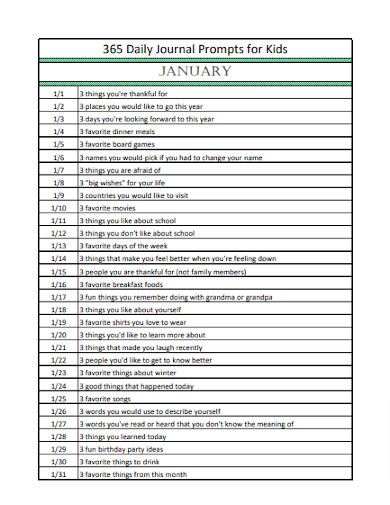
Daily School Journal
download now -
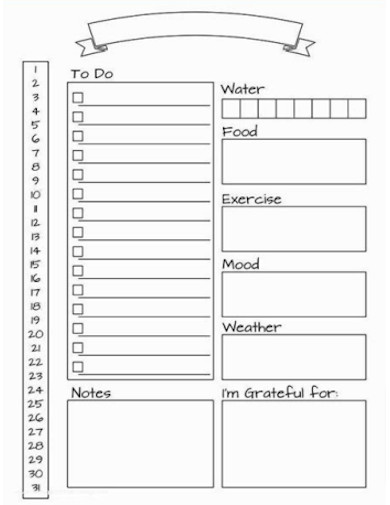
Daily Planner Bullet Journal
download now -
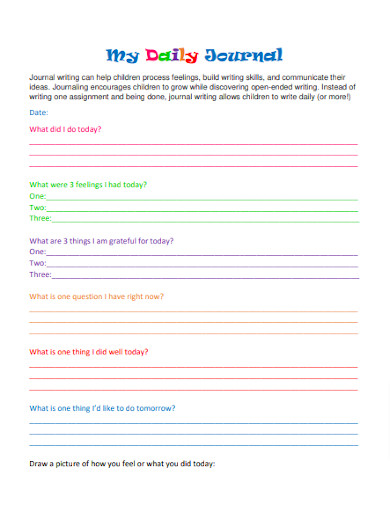
Children Daily Journal
download now -
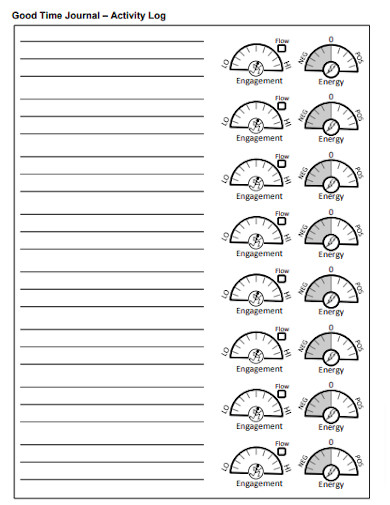
Daily Journal Activity Log
download now -
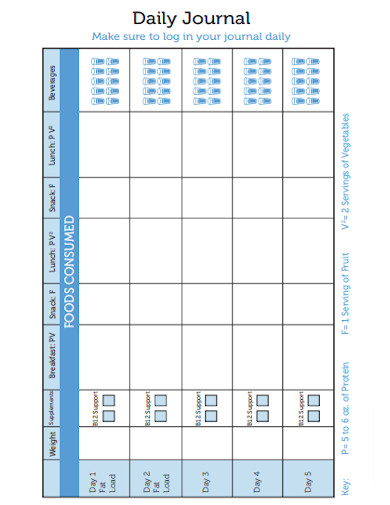
Daily Journal Log
download now -
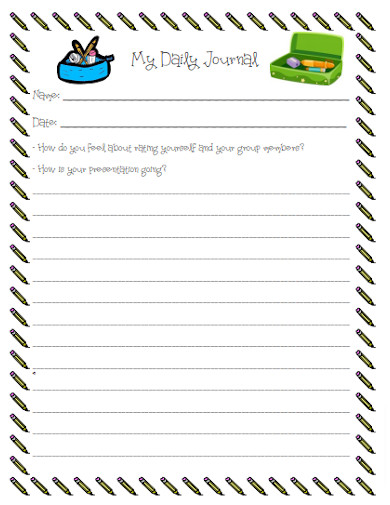
My Daily Journal
download now -
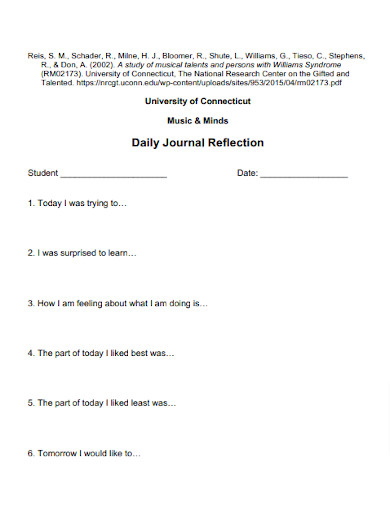
Student Daily Journal
download now -

Simple Daily Journal
download now -
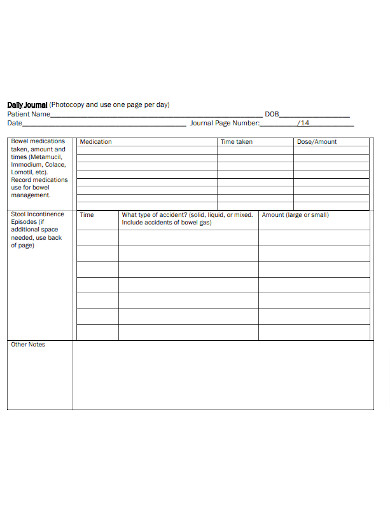
Editable Daily Journal
download now -
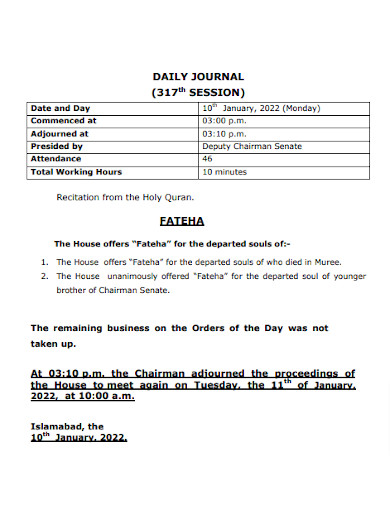
Basic Daily Journal
download now -
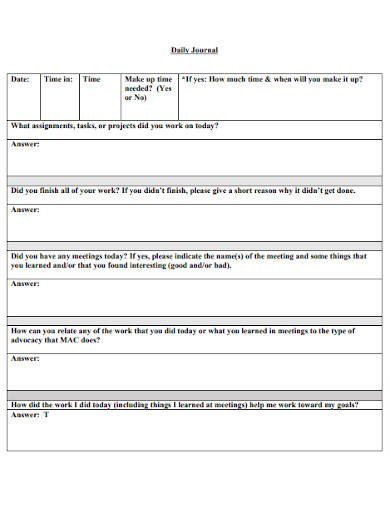
Daily Journal in PDF
download now
FREE Daily Journal s to Download
Daily Journal Format
Daily Journal Samples
What is a Daily Journal?
Purpose of a Daily Journal
How to Create a Daily Journal
FAQs
What are the benefits of a daily journal?
How much time should I dedicate to my daily journal every day?
What are the benefits of keeping a Daily Journal?
What is the difference between a Daily Journal and a Diary?
Can journaling improve mental health?
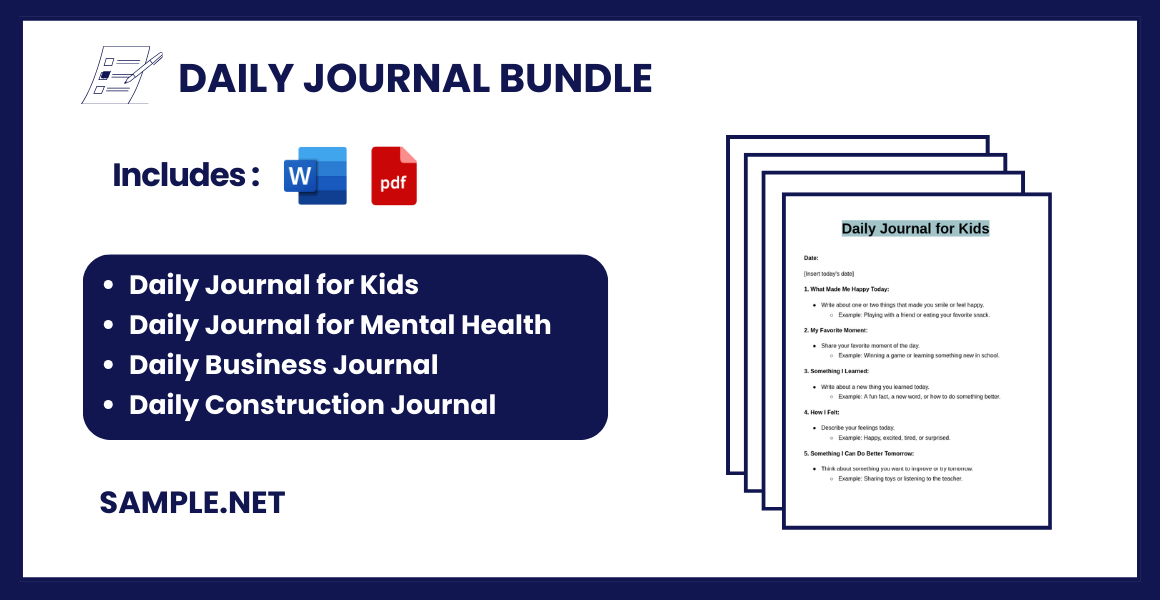
Daily Journal Format
Date:
[Insert today’s date]
1. Gratitude:
- Write down 3 things you are grateful for today.
- Example: A productive meeting, a sunny day, or a kind gesture from a friend.
2. Goals for the Day:
- List 3-5 specific goals you aim to achieve today.
- Example: Complete a project task, exercise for 30 minutes, or prepare a healthy meal.
3. Reflections:
- Write about your thoughts, feelings, or insights from the day.
- Example: Challenges you faced, moments of joy, or personal growth.
4. Successes:
- Celebrate 2-3 achievements from the day (big or small).
- Example: Meeting a deadline, having a meaningful conversation, or practicing self-care.
5. Challenges:
- Note down any obstacles or difficulties you encountered.
- Example: Time management, unexpected interruptions, or personal struggles.
6. Lessons Learned:
- Reflect on key takeaways or lessons from the day.
- Example: Insights into better communication, productivity, or emotional resilience.
7. Mood Tracker:
- Describe your overall mood for the day (or rate it on a scale of 1-10).
- Example: Calm, happy, stressed, or motivated.
8. Tomorrow’s Plan:
- Outline key priorities or tasks for the next day.
- Example: Preparing for a presentation, scheduling meetings, or planning a workout.
What is a Daily Journal?
A Daily Journal is a personal record where individuals write about their daily experiences, emotions, and thoughts. It is a safe space to express oneself and gain clarity on life’s events. A journal can be structured or free-flowing, depending on personal preferences. It serves as a means to document achievements, set goals, and reflect on challenges. Over time, it becomes a valuable archive of personal growth and self-awareness. You can also see more on Morning Journal.
Purpose of a Daily Journal
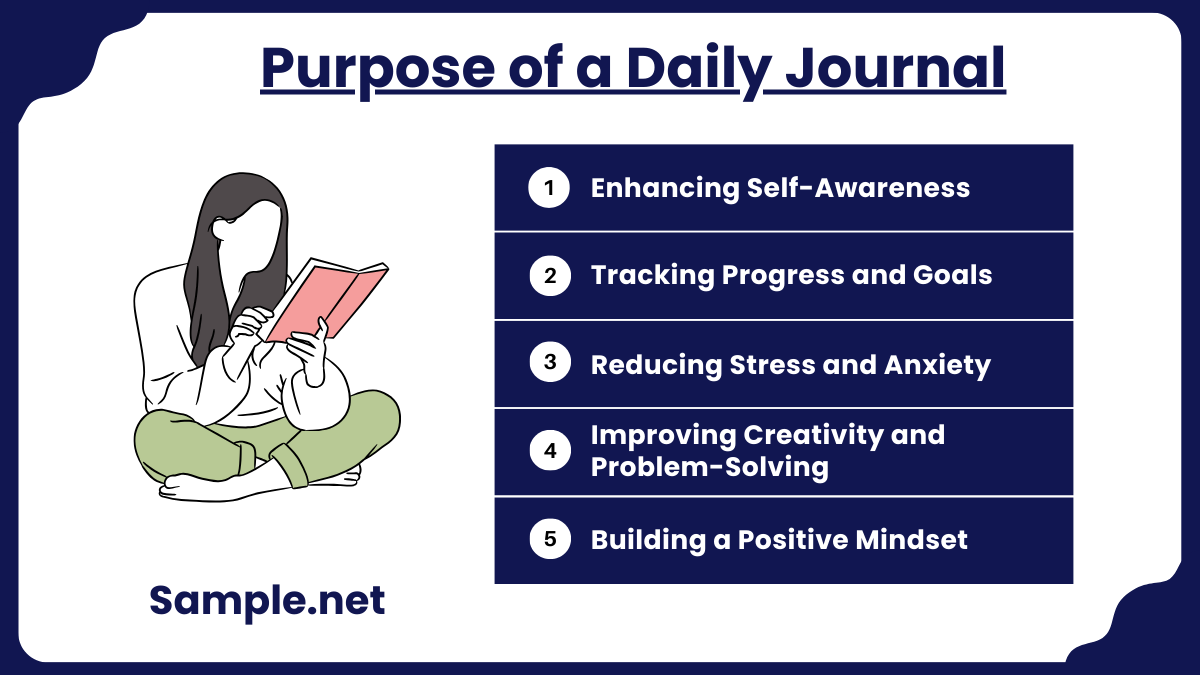
1. Enhancing Self-Awareness
Journaling helps individuals gain insight into their thoughts, emotions, and behaviors. By reflecting on daily experiences, one can identify patterns and triggers. This heightened self-awareness leads to better decision-making and emotional intelligence. It creates a stronger connection with oneself and fosters personal growth. Regular journaling cultivates mindfulness and helps individuals understand their inner world. You can also see more on Daily Planners.
2. Tracking Progress and Goals
A Daily Journal is an excellent way to monitor personal achievements and setbacks. Writing about goals and tracking progress provides motivation and accountability. It enables individuals to celebrate small victories and adjust strategies for improvement. This habit ensures consistent focus on objectives and helps maintain long-term momentum. Journaling transforms abstract dreams into actionable plans.
3. Reducing Stress and Anxiety
Writing in a journal provides an outlet for expressing worries and fears. It allows individuals to release negative emotions and gain perspective on challenging situations. This process helps reduce stress and promotes emotional well-being. Journaling acts as a form of therapy, offering clarity and comfort during tough times. It encourages resilience and a positive outlook on life.
4. Improving Creativity and Problem-Solving
Journaling stimulates creativity by encouraging free-flowing thoughts and ideas. It provides a space to brainstorm solutions to problems and explore innovative perspectives. Regular writing unlocks the imagination and helps overcome creative blocks. This practice fosters originality and enhances critical thinking skills. A Daily Journal becomes a source of inspiration and creative expression. You can also see more on Journal Report.
5. Building a Positive Mindset
Writing about gratitude, accomplishments, and positive experiences promotes optimism. A Daily Journal helps individuals focus on the good in their lives, shifting their mindset to one of appreciation. This habit rewires the brain to notice positive aspects, leading to increased happiness and contentment. Journaling builds emotional resilience and reinforces a constructive outlook on life
How to Create a Daily Journal
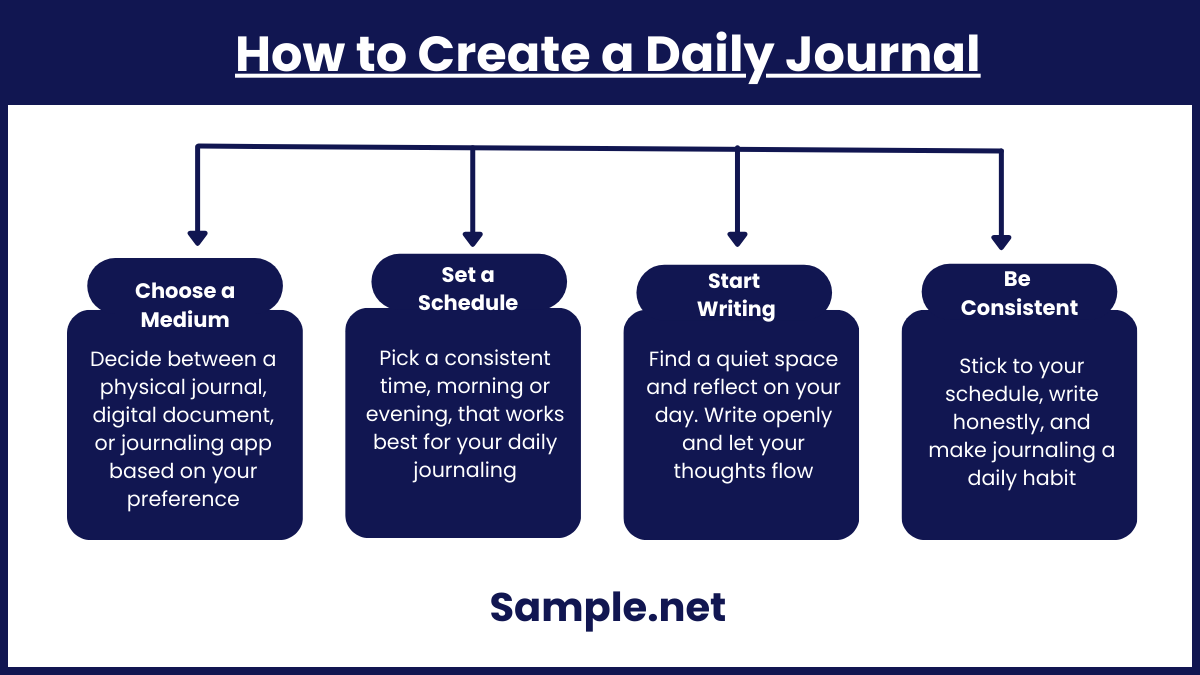
Have you created a daily journal before? Or is it your first time to have a daily journal? The following are the steps that you can do to create a daily journal:
1. Select a Medium
The first thing that you should do is to decide on a journaling medium. Do you prefer a physical journal or a digital document? Or do you want a journaling app? Select a medium that is most comfortable for you. You can also see more on Printable Planner.
[/ns_row]
2. Decide on a Schedule
Establish a regular time for your daily journal. Choose an hourly schedule for it. You can set a schedule in the morning or the evening. It is completely up to you. Know what works best for you.
3. Start with a Daily Entry
Find a quiet and comfortable space where you can write every day. Then begin your journal by writing a daily entry. Reflect on your day. Write freely and openly. Allow your thoughts to flow naturally.
4. Stay Consistent
Incorporate gratitude and self-reflection in your daily journal. Write honestly and authentically. Then make journaling a habit by sticking to the schedule that you have created. Be flexible but be sure that you can write every day in your daily journal. You can also see more on Hourly Calendar.
FAQs
What are the benefits of a daily journal?
The benefits of a daily journal are emotional release, self-expression, increased self-awareness, good decision-making, stress reduction, improved creativity, memory enhancement, and goal setting.
How much time should I dedicate to my daily journal every day?
The time that you can dedicate to your daily journal is completely up to you. You can allot a few minutes to an hour or more. You can also see more on Sample Scheduling.
What are the benefits of keeping a Daily Journal?
A Daily Journal offers numerous benefits, including enhanced self-awareness, better emotional regulation, and improved problem-solving skills. It allows you to track personal progress, set goals, and reflect on daily experiences. Journaling also reduces stress by providing an outlet for expressing thoughts and emotions. Over time, it fosters mindfulness and helps you build a positive and resilient mindset.
What is the difference between a Daily Journal and a Diary?
A Daily Journal often focuses on self-reflection, goals, and personal growth, while a diary typically records daily events and experiences. Journals are more structured and may include prompts or creative expressions. Diaries are often used for emotional expression and capturing memories. Both serve as tools for documentation, but journals offer a broader scope for personal development.
Can journaling improve mental health?
Yes, journaling can help process emotions, reduce anxiety, and promote mindfulness, enhancing overall mental well-being. You can also see more on Hourly Planner.
